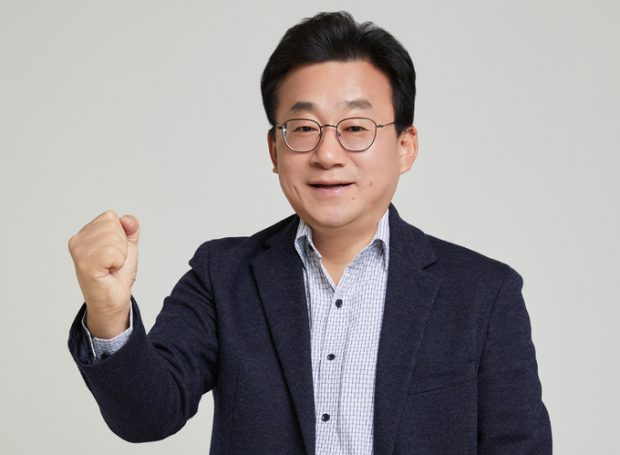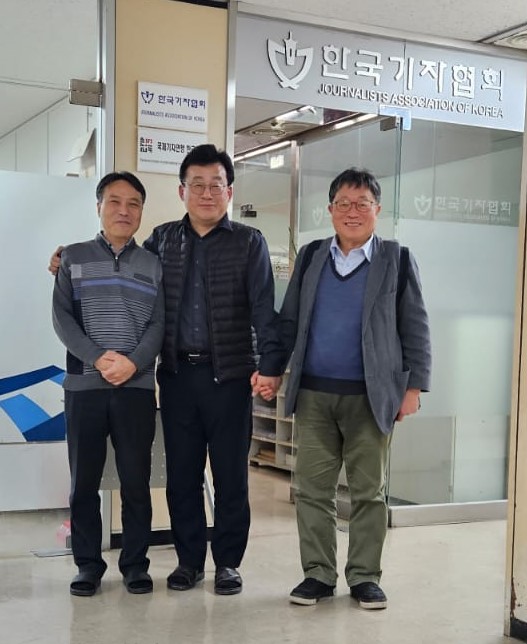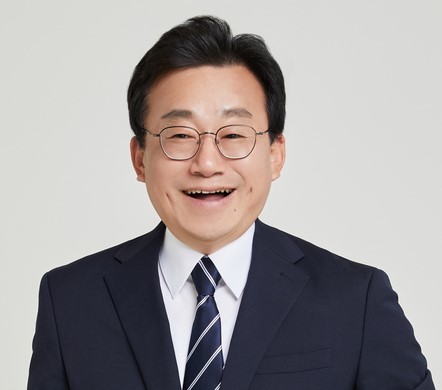We will listen carefully and humbly to all members’ opinions: JAK new President Park Jong-hyun

Park Jong-hyun, Journalists Association of Korea’s 49th President (JAK)
SEOUL: Park Jong-hyun was elected as the 49th President of the Journalists Association of Korea (JAK) on December 11 has started his two-year tenure amid firm commitment to honor his pledges.
“I had an indescribable feeling the moment I heard the news of my election,” Park said.
“More than joy, the images of the countless senior and junior fellow reporters I met during the last election campaign came to mind first. I’m a little worried, but I won’t forget my original intention until the end of my term,” he said in an interview carried by JAK on its website.
During the election campaign, he made nine key pledges, including protecting press freedom, communication and harmony, expanding overseas training, and reforming the journalist award system.
“I will make continuous efforts to promote press freedom and development, which is the original mission of the Association. I will do my best to create an environment where reporters can fulfill their original calling without being swayed by external trends. We will rebuild the journalists’ shaky status, reinvigorate their self-esteem, and help ensure that their articles that came out from hard work are properly evaluated.”
Park said the main reason for running is that there were “a lot of problems in the media world right now”.
“I wanted to solve this problem and create an environment and foundation for members of the Journalists Association of Korea to unite by leveraging my experience at the time for the freedom and development of the press and the rights and interests of members,” he said.
The severe lack of training opportunities for members has also contributed to his decision to run, he added.
“I am determined to give my all to creating an environment where reporters can fulfill their true calling without being swayed by external influences,” he pledged.
Executives of the Korea Journalists Association should have a firm philosophy for the association, Park stressed.
“We are trying to find people from all over the country who have affection for the association and want to work together. We also plan to receive recommendations. Once the talent pool is formed to a certain extent, roles will be assigned based on capabilities, taking into account region, generation, political tendencies … I would be grateful if members across the country would voluntarily nominate people with outstanding character and capabilities.”
The nine key points Park made during the campaign included protecting press freedom, communication and harmony, expanding overseas training, reorganizing the journalist award system, supporting local media and coexistence, improving the image of the press, strengthening on-site reporting support, establishing a special committee to respond to portal news, and stabilizing the association’s finances. A promise was made.
“Rather than focusing on any one pledge, I believe that these core pledges are promises that must be kept. I just want to take care of everything. To concretize these pledges, JAK’s president and executive team will work together to resolve the issue. We will meet with government officials and strongly request institutional arrangements and support for necessary projects. We will make every effort to provide overseas training and reporting support.”

Park (C) with Lee Sang-ki (R) who was elected JAK President in 2004
“All for one and one for all” will be the motto during his tenure, Park said.
“I believe that the relationship between the Korea Journalists Association and its member journalists can be summarized in the line ‘All for one and one for all’. Each reporter who writes an article under his or her own name is a member of the media, but there are many things that are difficult to solve on one’s own. The Association is an organization that strives for the common values pursued by reporters, namely press freedom, justice, and social development,” he said.
“At the same time, the association must serve and care for each member. JAK President is the captain who holds the rudder and leads the voyage so that the Association can carry out this role well. At the same time, I think we must have the heart of a mother who cares for each and every member. We will listen carefully to the opinions of our members with a humble attitude, and diligently put into practice the policies decided upon by the group.”
JAK, the largest organization of professional journalists in Korea, has a current membership of over 10,000 journalists working for the nation’s newspaper companies, broadcasting services, Internet news, and news agencies.
JAK was founded on August 17, 1964 as a united force for struggle to confront the Press Ethics Commission Law that institutionalized the then-military government’s inference with the media.
Since its foundation, the Association has advocated five Codes of Conduct leading up to today, which are the protection of freedom of speech; the improvement of the quality of journalists; the protection of the rights and interests of journalists; the achievement of peaceful reunification of the Korean Peninsula; and the strengthening of international exchanges with journalists around the world.
The Journalists Association of Korea comprises a president, a group of vice-presidents, an advisory group, an auditor, six standing subcommittees, including subcommittees on freedom of the press, protection of rights and interests, research, international exchanges, disciplinary actions, and reunification, as well as 10 branch offices based in metropolitan cities and provinces across the country.
The JAK president is elected through a direct election system and his/her term is two years.
JAK offers special awards to its member journalists who display outstanding journalism, such as the annual Korea Journalist Award and the monthly Award for Journalist of the Month.
Established in 1967, the Korea Journalist Award is the nation’s most prestigious press award in terms of history, tradition and authority. Established in 1990, the Award for Journalist of the Month is decided by selecting news articles with journalistic excellence through strict screening procedures among news articles in the nation’s newspapers, broadcasting services or on the Internet.
The Journalists Association of Korea also strives to enhance the skills and professionalism of its members through various seminars, forums, discussion sessions and domestic and overseas training.
In addition, the JAK carries out journalist talent donation activities through a program where journalists visit schools to explain the
social roles of the media, newspaper and broadcasting production processes and news coverage cases …
The Journalists Association of Korea publishes a weekly magazine- founded on November 10, 1964 as an important medium to publicize the activities of the Association. The weekly offers in-depth analysis of the rapidly changing media environment monitors whether the media is properly fulfilling its role, and presents viable alternatives.

Park Jong-hyun, Journalists Association of Korea’s 46th President (JAK)
JAK has maintained brisk exchanges with international journalist associations- notably, the International Federation of Journalists (IFJ) and with individual journalists around the world. It successfully hosted the 24th general meeting of the IFJ in 2001 and the East Asia
The Journalists Association of Korea is also engaged in inter-Korean journalist exchanges to promote peace and reunification of the Korean Peninsula.
In 2006, there was a historic meeting of 172 journalists from South and North Korea at Mt. Kumgang for the first time since the division of the Peninsula in 1945. Since then, heads of the JAK have visited Pyongyang, the capital of North Korea, to exchange opinions on peace on the Korean Peninsula with North Korean journalists.
However, as of 2013, inter-Korean journalist’s exchanges were suspended due to political factors.
The Journalists Association of Korea, which has taken the lead in defending the freedom of the press against suppression by the authoritarian rule and appeasement of journalists over the past five decades, says it will continue to do its utmost to not only improve the quality of journalists and guarantee their rights, but also to advance journalism in the era of new media and faithfully fulfill the public functions of the media.





















































